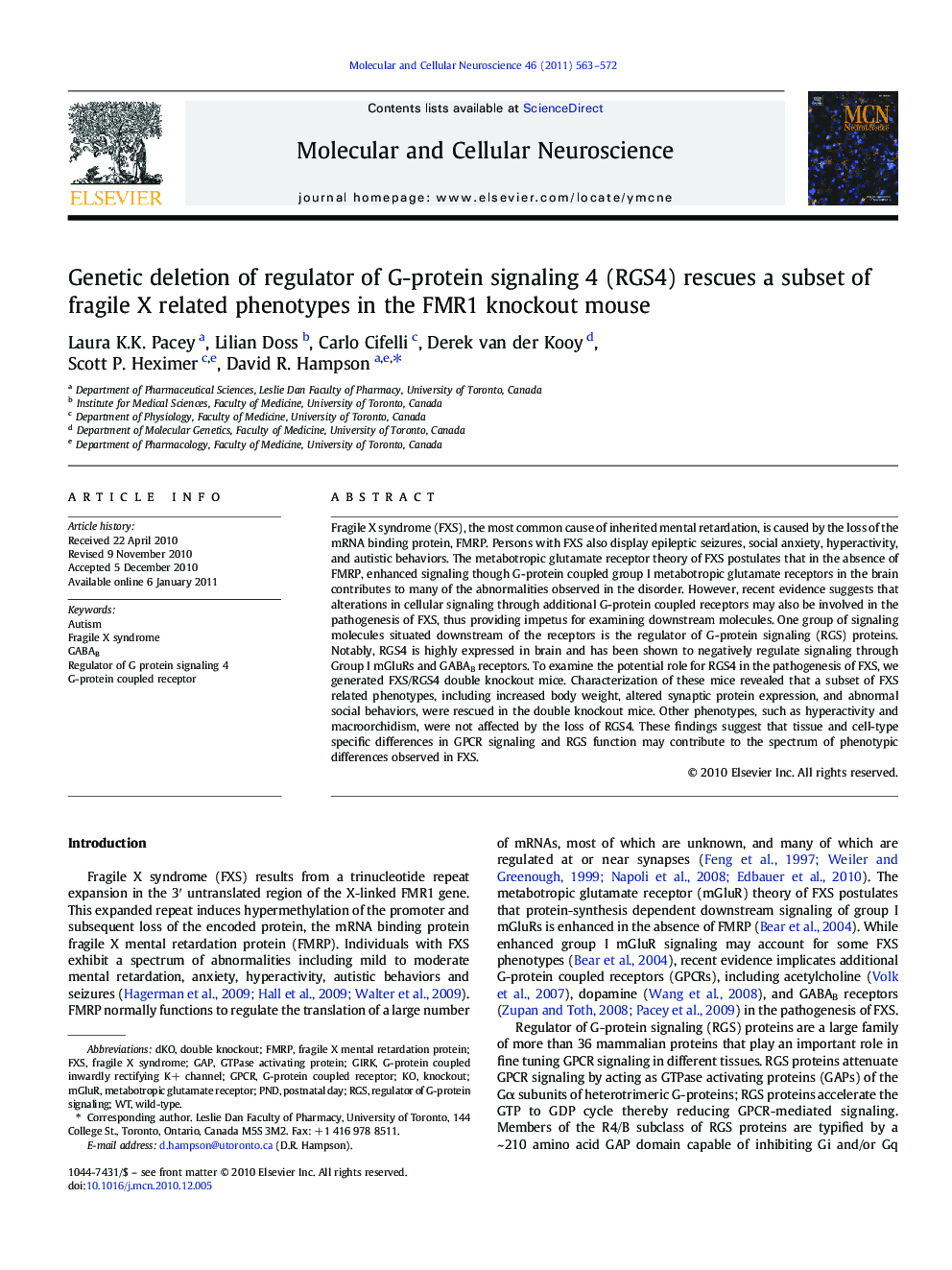| Article ID | Journal | Published Year | Pages | File Type |
|---|---|---|---|---|
| 2198666 | Molecular and Cellular Neuroscience | 2011 | 10 Pages |
Fragile X syndrome (FXS), the most common cause of inherited mental retardation, is caused by the loss of the mRNA binding protein, FMRP. Persons with FXS also display epileptic seizures, social anxiety, hyperactivity, and autistic behaviors. The metabotropic glutamate receptor theory of FXS postulates that in the absence of FMRP, enhanced signaling though G-protein coupled group I metabotropic glutamate receptors in the brain contributes to many of the abnormalities observed in the disorder. However, recent evidence suggests that alterations in cellular signaling through additional G-protein coupled receptors may also be involved in the pathogenesis of FXS, thus providing impetus for examining downstream molecules. One group of signaling molecules situated downstream of the receptors is the regulator of G-protein signaling (RGS) proteins. Notably, RGS4 is highly expressed in brain and has been shown to negatively regulate signaling through Group I mGluRs and GABAB receptors. To examine the potential role for RGS4 in the pathogenesis of FXS, we generated FXS/RGS4 double knockout mice. Characterization of these mice revealed that a subset of FXS related phenotypes, including increased body weight, altered synaptic protein expression, and abnormal social behaviors, were rescued in the double knockout mice. Other phenotypes, such as hyperactivity and macroorchidism, were not affected by the loss of RGS4. These findings suggest that tissue and cell-type specific differences in GPCR signaling and RGS function may contribute to the spectrum of phenotypic differences observed in FXS.
